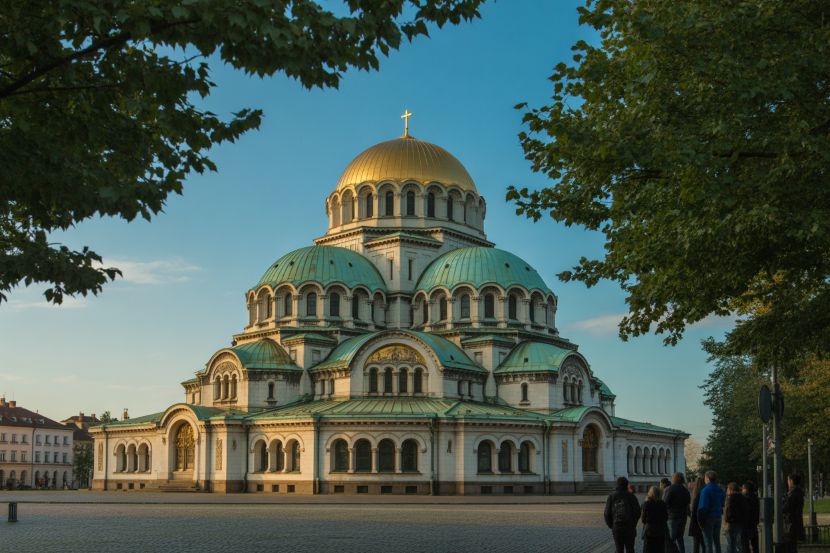Published on
August 10, 2025 |
Russian tourists to Bulgaria have fallen sharply about ten times fewer than in 2019. This huge drop is worrying for the future of Bulgaria’s tourism, since the country used to attract a lot of Russian visitors on holiday. The tourism sector is now asking how to adapt to a trip demand that may never fully bounce back.
Factors Behind the Decline
Russian Ambassador to Bulgaria, Eleonora Mitrofanova, recently shed light on the reasons behind this significant drop. According to Mitrofanova, the number of Russian visitors to Bulgaria fell sharply, with only around 50,000 Russian tourists visiting the country last year. In contrast, pre-2019 figures indicated that approximately 500,000 Russian travelers used to visit Bulgaria annually. This decline in numbers reflects broader disruptions in travel relations between the two countries.
One of the major contributing factors to the plunge in tourist arrivals is the suspension of direct air travel routes between Russia and Bulgaria. Before the suspension, direct flights played a crucial role in facilitating easy and efficient travel between the two nations. The loss of these direct connections has added significant challenges for Russian tourists hoping to visit Bulgaria. For many travelers, the added complexity of layovers and longer travel times has made the journey less appealing.
The Role of the European Union
Mitrofanova also pointed to the European Union’s involvement in the matter, indicating that its actions have exacerbated the situation. In particular, the EU’s stance has led to the breakdown of a key bilateral agreement that had previously streamlined the visa process for Russian visitors. Prior to the breakdown of this agreement, the visa procedures for Russian nationals wishing to visit Bulgaria were relatively simple and accessible. However, with the current restrictions in place, obtaining visas has become more difficult, further hindering the flow of Russian tourists into Bulgaria.
This shift has made it increasingly inconvenient and time-consuming for Russian nationals to travel to Bulgaria. As a result, many have opted for alternative destinations that offer more straightforward visa processes and better travel connections.
Ongoing Impact on Bulgarian Tourism
Aleksan Mkrtchyan, a key figure in Russia’s travel sector, confirmed the extent of the downturn. Mkrtchyan, who serves as the vice president of the Alliance of Russian Travel Agencies and the CEO of Pink Elephant, a leading Russian tour operator, highlighted that the number of Russian tourists visiting Bulgaria in 2024 remained low, hovering around the 50,000 mark. This decline is a direct reflection of the ongoing disruptions in the bilateral relations between Russia and Bulgaria, with lingering effects on the tourism industry.
The reduction in Russian tourism has significant implications for Bulgaria’s economy, especially in regions that have historically depended on Russian visitors. The decrease in visitors from Russia has been particularly felt in the hospitality and transportation sectors, where businesses geared towards Russian clientele are seeing fewer bookings.
Bulgaria’s Efforts to Recover
As the impact of these disruptions continues to unfold, Bulgarian tourism authorities have been looking for ways to mitigate the effects of this sharp decline. While the challenges are substantial, there is still hope that Bulgaria can recover from the loss of Russian tourists in the coming years.
Efforts are underway to diversify Bulgaria’s tourism offerings and target different international markets. In particular, the Bulgarian government has been promoting its rich cultural heritage, stunning landscapes, and diverse attractions in a bid to attract new tourists from other countries. Additionally, the country has been working on enhancing its infrastructure and improving the visa application process to facilitate easier travel for tourists from a broader range of nations.
The Future of Russian Tourism to Bulgaria
Even with the current hurdles, Russian travel to Bulgaria could bounce back if diplomatic ties get better and travel logistics get ironed out. Any thaw in politics could lead to the return of direct flights and simpler visa rules both of which would quickly get Russian visitors back on the beaches and mountain trails.
Still, getting back to the tourism numbers of the past won’t happen overnight. In the meantime, Bulgaria’s tourism sector has to stay flexible and creative, courting new visitor groups and fresh ideas so it can hold its own on the world travel stage.
The Bottom Line
Bulgaria’s tourism industry is working hard to win back Russian visitors after repeated travel shakiness. The ability to pivot with changing travel rules and broader global relations is what will make or break the country’s appeal moving forward. If Bulgaria listens to new traveler habits and updates its offers and marketing approach, it can still hold on to its reputation as an attractive stop in Southeastern Europe.
